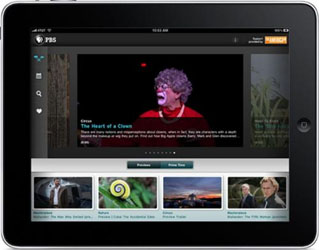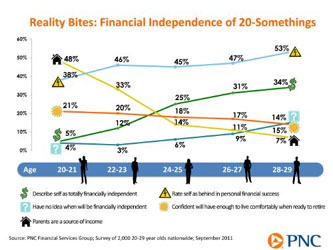CIOs – Chief Information (or Ignorant) Officers?
CIOs must get the balance right between utility and innovation in order to secure influence in the future, according to new research from PA Consulting Group and Harvey Nash.
The 2011 survey of over 2,500 CIOs and IT leaders reveals that CIOs are playing an increasingly influential role within their organisations (50 per cent now sit on the operational board or management team).
However, the main demands on them remain cost saving, increasing operational efficiencies and delivering consistent and stable IT performance to the business. They need to consider the right balance between the utility and innovation components of IT.
Striking the right balance is a challenge. The top three issues that management boards are asking CIOs to address are: saving costs (67 per cent), increasing operational efficiencies (65 per cent) and delivering consistent and stable IT performance to the business (64 per cent). An excessive focus on utility activities can undermine the pursuit of technology innovation.
Focusing on either extreme of the utility-to-innovation continuum is not an option for ambitious CIOs. Those that simply focus on utility will run the risk of becoming the equivalent of facilities managers as work is increasingly outsourced, almost half (47 per cent) of UK CIOs are planning to increase their outsourcing spend.
[ Also Read: Outsourcing: Latin America Threat to India, China ]Meanwhile, those pursuing a strategy of innovation must remember the importance of keeping the lights on – it is all very well to offer the business the latest social networking app, but if core business operations are hampered by IT failure, the CIO’s career may be over.
The balance between utility and innovation is different in every industry. CIOs in city markets lead on innovation with 77 per cent focused on innovation, with retail (75 per cent) and financial services (71 per cent) close behind.
At the other end of the spectrum, less than half of CIOs in pharmaceuticals are focused on innovation, and less than quarter in both construction and engineering are innovation focused.
In 2010, 51 per cent of CIOs were considering using cloud computing. In 2011, there is still a mixed picture of use. Despite the much cited benefits, 8 per cent of organisations that have considered cloud have discounted it for their organisation and only 22 per cent of CIOs are exploiting cloud for core business processes. CIOs are still resolving where cloud can and cannot add value as part of their business model.
[ Also Read: Ali Shadman Reveals the Secrets of Cloud Computing ]Meanwhile, with the theme “Beyond the Crossroads: How will the CIO role evolve in the digital business world?” the 8th Annual MIT Sloan CIO Symposium attracted CIOs, CTOs, and senior technology executives from around the world. Among other topics of current interest, the show allowed a discussion on the evolving CIO role in the emerging cloud computing and mobile communication environments. (Read: Are CIOs Ready to Live in the Digital Business World?)
PA’s David Elton, IT and change management specialist, says: “The challenge for CIOs is to find the right balance between utility and innovation for their organisation, recognising that it might be a moving target.”
Albert Ellis, Harvey Nash chief executive officer, says: “Driving innovation whilst continuing to provide core technology utility services to the business will be increasingly demanded from CIOs as we move out of recession. Securing the company’s data and technology from cyberattacks, whilst at the same time exploiting the growth of social media for business use will be the key challenge facing CIOs in the coming decade. And yet we are increasingly seeing these hybrid CIOs on our shortlists, many of whom see the CIO role as a stepping stone to something much bigger.”
The survey was conducted online by PA Consulting Group and Harvey Nash between 18 November 2010 and 4 April 2011 amongst 2,575 senior level IT professionals from businesses across the world. This is the 13th in a series of annual CIO surveys conducted to identify emerging trends and issues in IT leadership.
The survey results were announced today, June 15.
PA Consulting Group is a leading management and IT consulting and technology firm. Harvey Nash is a global professional recruitment consultancy and IT outsourcing service provider.
Photo courtesy: MIT Sloan CIO Symposium






